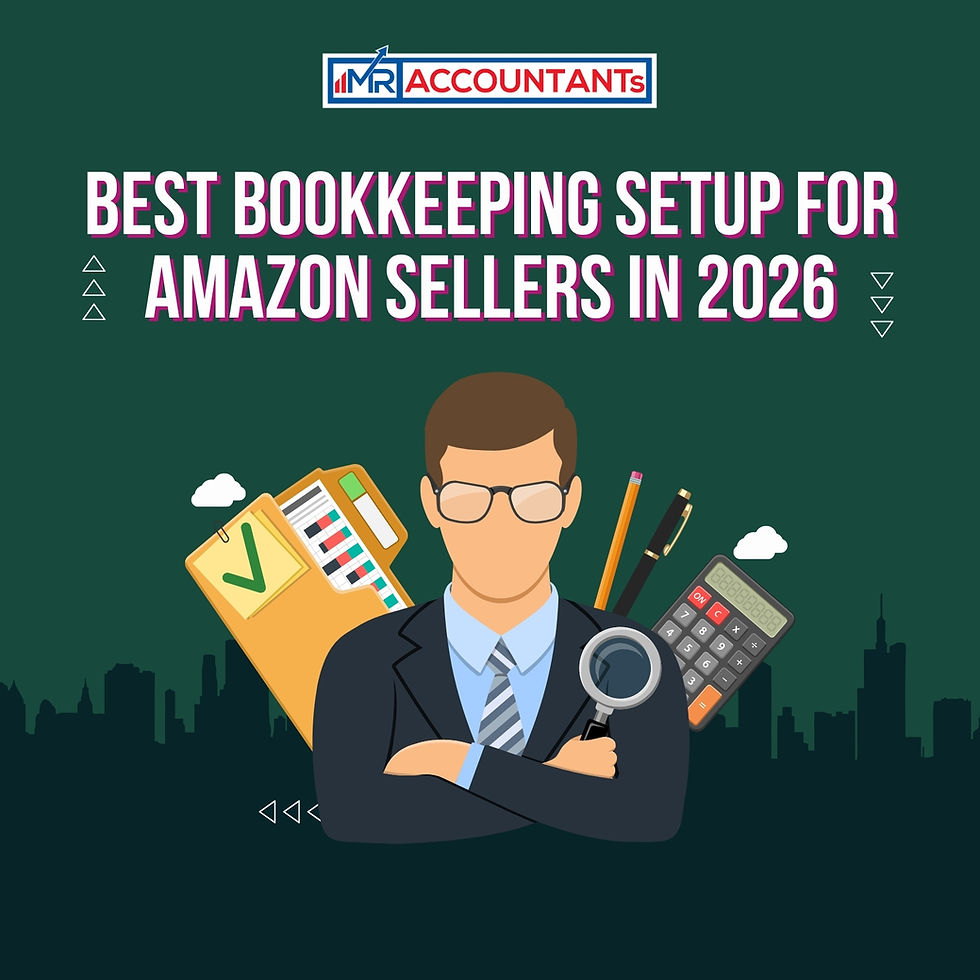Why Your Startup Needs a Virtual CFO for Startups
- Mujibur Rahman
- Nov 25, 2025
- 5 min read
Starting a business is an exciting journey filled with opportunities and challenges. One of the most critical aspects of building a successful startup is managing your finances effectively. Many startups struggle with financial planning, budgeting, and forecasting due to limited resources or lack of expertise. This is where a virtual CFO can make a significant difference. In this article, I will explain why your startup needs a virtual CFO, how it can benefit your business, and what to expect from this service.
The Importance of a Virtual CFO for Startups
Managing finances is not just about keeping track of expenses and revenues. It involves strategic planning, risk management, and making informed decisions that drive growth. For startups, these tasks can be overwhelming, especially when the focus is on product development and market entry. A virtual CFO offers expert financial guidance without the cost of hiring a full-time executive.
Here are some key reasons why a virtual CFO is essential for startups:
Cost Efficiency: Hiring a full-time CFO can be expensive. A virtual CFO provides the same expertise at a fraction of the cost.
Flexibility: You can scale the services up or down based on your business needs.
Access to Expertise: Virtual CFOs bring years of experience from various industries, offering valuable insights.
Focus on Core Business: With financial management handled, you can concentrate on growing your startup.
Improved Financial Planning: Accurate budgeting, forecasting, and cash flow management help avoid financial pitfalls.
By integrating a virtual CFO into your startup, you gain a strategic partner who helps you navigate financial complexities and positions your business for long-term success.

How a Virtual CFO for Startups Transforms Your Business
A virtual CFO does more than just bookkeeping or accounting. They act as a financial strategist, advisor, and planner. For startups, this role is crucial because early financial decisions can impact the company’s trajectory.
Here’s how a virtual CFO transforms your startup:
Strategic Financial Planning
A virtual CFO helps create a financial roadmap aligned with your business goals. This includes setting realistic revenue targets, managing expenses, and planning for growth phases.
Cash Flow Management
Startups often face cash flow challenges. A virtual CFO monitors cash inflows and outflows, ensuring you have enough liquidity to meet obligations and invest in opportunities.
Fundraising Support
Whether you are seeking angel investors, venture capital, or loans, a virtual CFO prepares financial statements, projections, and pitch materials that impress stakeholders.
Risk Management
Identifying financial risks early helps prevent costly mistakes. A virtual CFO assesses risks related to credit, market changes, and operational costs.
Financial Reporting and Compliance
Accurate and timely financial reports are essential for decision-making and regulatory compliance. A virtual CFO ensures your reports meet industry standards and legal requirements.
Technology Integration
Virtual CFOs often recommend and implement financial software that automates processes and provides real-time insights.
By leveraging these services, startups can make data-driven decisions, optimize resources, and build investor confidence.
What is a Digital CFO?
The term "digital CFO" is often used interchangeably with virtual CFO, but there are subtle differences. A digital CFO emphasizes the use of technology and digital tools to manage financial operations remotely. This role focuses on leveraging cloud-based accounting software, data analytics, and automation to enhance financial management.
A digital CFO typically:
Uses advanced analytics to forecast trends and identify opportunities.
Implements digital platforms for seamless collaboration and reporting.
Enhances cybersecurity measures to protect financial data.
Provides real-time financial dashboards accessible from anywhere.
For startups, a digital CFO offers the advantage of agility and innovation, ensuring your financial strategy keeps pace with technological advancements.

Understanding What is a Virtual CFO and How to Choose One
If you are wondering what is a virtual CFO, it is a financial expert who provides CFO services remotely. Unlike traditional CFOs who work on-site, virtual CFOs operate through digital communication channels, offering flexibility and cost savings.
When choosing a virtual CFO for your startup, consider the following:
Experience and Industry Knowledge: Look for someone familiar with your sector and startup challenges.
Service Scope: Ensure their services match your needs, whether it’s budgeting, fundraising, or compliance.
Communication Skills: Clear and regular communication is vital for remote collaboration.
Technology Proficiency: They should be adept at using financial software and tools.
References and Reviews: Check testimonials or case studies to verify their track record.
Engaging the right virtual CFO can provide your startup with a competitive edge and peace of mind.
Practical Steps to Integrate a Virtual CFO into Your Startup
Bringing a virtual CFO on board requires planning and clear expectations. Here are practical steps to ensure a smooth integration:
Define Your Financial Goals
Outline what you want to achieve with the virtual CFO’s help, such as improving cash flow or preparing for investment rounds.
Set Clear Roles and Responsibilities
Clarify what tasks the virtual CFO will handle and how they will interact with your team.
Establish Communication Protocols
Decide on meeting frequency, reporting formats, and communication channels.
Provide Access to Financial Data
Ensure the virtual CFO has secure access to your accounting systems and financial records.
Leverage Technology
Use cloud-based tools for collaboration, document sharing, and real-time updates.
Monitor Performance
Regularly review the virtual CFO’s impact on your financial health and adjust the engagement as needed.
By following these steps, you can maximize the benefits of having a virtual CFO and build a strong financial foundation for your startup.
The Long-Term Value of a Virtual CFO for Your Startup
Investing in a virtual CFO is not just a short-term fix; it is a strategic move that pays off over time. As your startup grows, financial complexities increase, and having a trusted advisor becomes indispensable.
The long-term value includes:
Sustainable Growth: Strategic financial planning supports scalable growth.
Better Decision-Making: Data-driven insights lead to smarter business choices.
Cost Savings: Avoid costly errors and optimize resource allocation.
Investor Confidence: Transparent and professional financial management attracts funding.
Adaptability: A virtual CFO helps you navigate market changes and economic shifts.
Ultimately, a virtual CFO empowers your startup to thrive in a competitive environment by providing expert financial leadership without the overhead of a full-time executive.
By embracing the expertise of a virtual CFO, your startup gains a powerful ally in managing finances, reducing risks, and achieving sustainable growth. This approach aligns perfectly with the goal of streamlining financial operations and gaining expert insights without the need for an in-house team. If you want to position your startup for success, consider the strategic advantage a virtual CFO offers today.
.png)



Comments